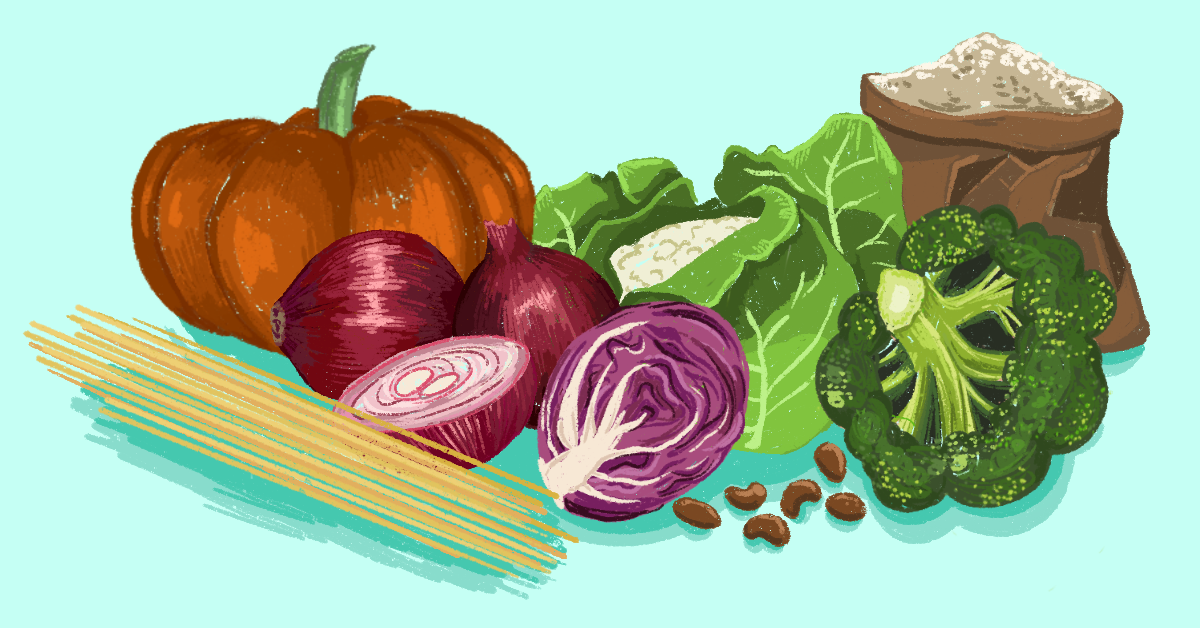Hi, I'm Sophie. I'm a Postgraduate Student studying a Research degree in Media and Cultural Studies. I'm also a photographer and big lover of dogs!

5 ways to reduce food waste
Food waste is increasingly recognised as a major global problem. Almost one third of food produced for human consumption is…
October 14, 2021,
read.
Food waste is increasingly recognised as a major global problem. Almost one third of food produced for human consumption is wasted every year, contributing around 8% of the world’s greenhouse gases. It can be hard to think about our individual contributions to this, but there are things that can be done to ensure everyone plays their part in reducing food waste.
Here are five key ways that you can help to create an impact in general day-to-day life…
1. Plan your meals
Forward planning can help to save money when buying food. Knowing exactly what you will need for your meals can help stop over-purchasing of other items, in turn limiting the amount of waste produced by unused items. When making a shopping list, try and include as many ingredients that you can use across multiple different types of meals so you can fully utilise what you purchase.
What you’re choosing to cook can also help. Soups and stews are smart dishes to make if you’re trying to limit food waste in your kitchen. You can add weird quantities of vegetables to the pot and make everything come together with seasoning. This is perfect for if your week doesn’t quite go to plan and you have excess veg left over.
If meal ideas are something you struggle with, check out our YouTube Channel where there are lots of videos on this topic.
2. Batch cook
Like planning meals for a week, batch cooking can not only make sure that you are using up what you buy, but take the effort out of cooking multiple times in a week. Having meals ready to go helps limit the chance of buying excess food such as takeaways, as well as extending the life span of the ingredients. Equally, if you find you’re cooking too much for one meal – keep it, don’t throw it away. The leftovers can be kept and used again, either as the same dish or reinvented into something else. Place in the fridge for short-term keeping or into the freezer for something a bit longer term.
3. Love your freezer
The freezer is a key item in helping reducing food waste. Most items can be put in the freezer to prolong shelf life and stop them from being thrown away. If you have excess fruit or vegetables, you can chop and freeze these to stop them going off, and then you have them ready to go for the next time you cook!
4. Check use by dates
There are two types of dates codes shops use for food – Use by and Best before. Use-by are the dates to take notice of, rather than the best-before dates as these products will spoil. By only buying what you can use before it expires, you will limit the amount of food you are throwing away because of expiry. However, you can once again utilise the freezer – most products will indicate if they are suitable for freezing. By doing this for nearly expired products, you can extend their life and keep their use for longer (and not waste them!)
5. Shop smart
Reducing food waste starts with what you originally purchase. The main tip is to only buy what you need to make sure you don’t have unnecessary excess (meal planning helps with this). One way you can do this is to make and update lists on what you’ve got and what you need to reduce duplicates and overspending. Where you may be tempted to only buy “perfect” looking items, buying that fruit and veg that could be deemed “ugly” often works out cheaper and they can be packaged more sustainably. Only bulk buy non perishable items – these are the ones that can be stored in your cupboards, or consider using a tinned alternative e.g. a tin of chopped tomatoes instead of fresh. These items often make up the bulk of a meal and have long shelf lives, making sure you always have something available to eat.
Whilst it is often easy to overlook what we might be wasting, it is a good idea to be mindful of what we actually consume and waste. Hopefully using a few of these tips can help you attempt to change your views of the food you waste and set you on a more sustainable path.



